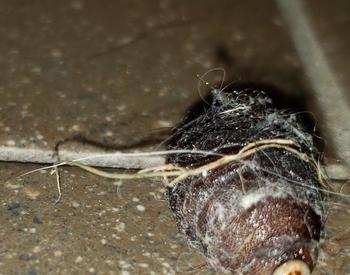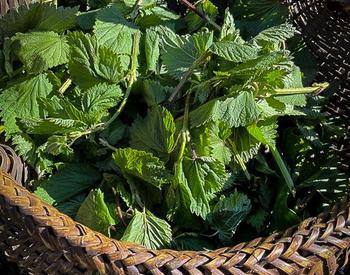I just moved into a new apartment and I was wondering how often I should be cleaning out my refrigerator and my freezer. I would like to know recommendations for the actual sanitation of the fridge and how often I should throw away old food. Thank you!
While there is no standard for how often to clean a refrigerator, a complete cleaning every couple of months will help to prevent food spoilage and cross-contamination of Listeria, a bacterium that causes foodborne illness and that can survive at 40º F.
Following safe food handling practices will also reduce your risk of foodborne illness. Wash your hands, kitchen surfaces and produce, keep raw foods separate from ready-to-eat foods, and cook food at safe temperatures.
Safety tips for refrigerators
- Keep the refrigerator at least 40º F or below. This will slow the growth of bacteria.
- Store your food properly. Keep foods stored in sealed containers and storage bags to avoid cross-contamination.
- Wipe up spills as they occur. Additionally, beware of raw meat thawing and dribbling blood onto other foods, which can cause cross-contamination.
- Pay attention to the dates on your food. A "use by" date means that the manufacturer recommends using the product by this date for the best flavor or quality. The product may change in taste, color, or nutrient content, but the product may be safe for consumption long after that date. Discard the food if it looks questionable.
The following publication has more specific information about which foods should be refrigerated:
Signs of food spoilage
Be aware that food can make you sick even if it doesn't appear to be spoiled. That's because foodborne illnesses are caused by pathogenic bacteria, which are different from spoilage bacteria. Listeria is an example of a pathogenic bacteria.
Here are some identifiable signs that food has spoiled and should be discarded:
- Mold: Mold is a common sign of spoilage in produce and bread products and can grow at temperatures below 40º F.
- Sour odors: If your refrigerator smells bad after discarding spoiled food, we recommend washing it with a solution that contains baking soda. Alternatively, placing an open box of baking soda in the refrigerator will also absorb odors.
- Sliminess or off-textures: Be sure to inspect fresh produce and leafy-green vegetables for changes in firmness and texture, since these spoil quickly.
Condiments are usually high in acid or salt, so quality is more of a concern than safety. Condiments such as ketchup, mustard, and salad dressings are pretty stable. Notice if they get rancid or moldy and then discard them.
Safety tips for freezers
- Keep your freezer at 0° F or below. This will ensure the best food quality.
- Defrost and clean out your freezer at least once a year.
- If the freezer loses power, be cautious when consuming foods. Keep the freezer door closed when possible. Full freezers can keep food safe for 48 hours, and half-filled freezers keep food safe for 24 hours.
The following resources have other great tips for navigating power outages:






















